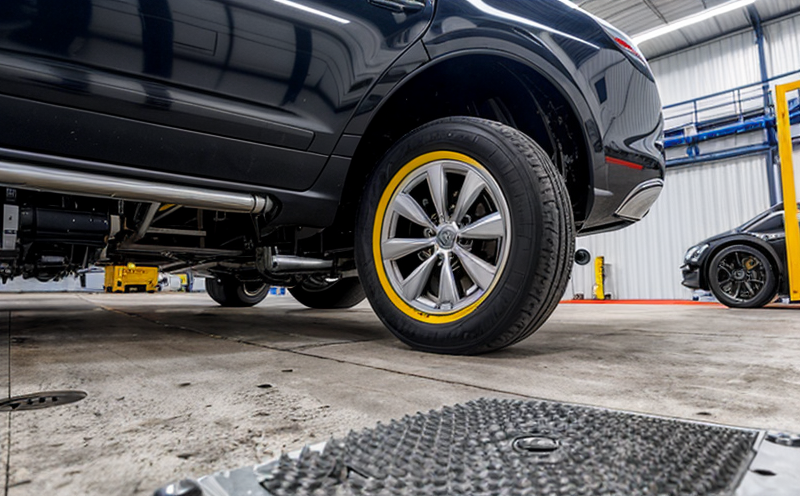ASTM F3055 Stainless Steel AM Material Testing for Aerospace Use
The ASTM F3055 standard provides a comprehensive framework for evaluating the mechanical, chemical, and microstructural properties of additively manufactured (AM) stainless steel components intended for aerospace applications. This service ensures that manufacturers can meet stringent quality and safety requirements by validating the integrity and reliability of their products.
The testing process involves multiple stages, each designed to assess different aspects of AM stainless steel materials. First, specimens are carefully prepared according to ASTM F3055 guidelines to ensure consistent results across batches. This includes considerations for layer thickness, build orientation, and heat treatment methods that can significantly influence the mechanical properties.
Following preparation, a series of tests are conducted using advanced instrumentation such as tensile testers, hardness testers, and optical microscopes. These tests measure critical parameters like tensile strength, yield strength, elongation, Rockwell hardness, grain size distribution, and surface finish. The results provide insights into the mechanical behavior under various loading conditions, which is crucial for aerospace applications where structural integrity is paramount.
The testing process also includes chemical analysis to verify compliance with specified alloy compositions as outlined in ASTM F3055. This ensures that the material meets the exacting standards required for safety and performance in aerospace environments. Microstructural examination helps identify any defects or inconsistencies that could affect the service life of the component.
Given the critical nature of aerospace components, it is essential to validate not only the mechanical properties but also the dimensional accuracy and surface finish. This ensures that the final product meets both functional and aesthetic requirements. In addition to these mechanical and chemical tests, non-destructive testing (NDT) techniques such as ultrasonic inspection or radiography may be employed to ensure there are no hidden flaws within the material.
The comprehensive nature of ASTM F3055 ensures that all relevant aspects of AM stainless steel materials are thoroughly evaluated. This allows manufacturers to confidently submit their products for certification, thereby ensuring compliance with international standards and regulations. The testing process not only enhances product quality but also builds trust among end-users who rely on the reliability and safety of aerospace components.
| Test Type | Purpose | Key Performance Indicators (KPIs) |
|---|---|---|
| Tensile Testing | Measures tensile strength and yield strength. | Tensile Strength, Yield Strength, Elongation |
| Hardness Testing | Determines hardness of the material. | Rockwell Hardness |
| Microstructural Analysis | Evaluates grain size and structure. | Grain Size Distribution, Martensite Content |
| Chemical Composition Analysis | Verifies alloy composition. | Carbon, Chromium, Nickel Concentrations |
Why It Matters
The aerospace industry demands materials that are not only lightweight but also incredibly durable and reliable. Additive manufacturing offers a way to achieve these goals, but it is crucial to ensure that the materials produced through this process meet the highest standards of quality and safety.
- Enhances reliability by ensuring that AM stainless steel components can withstand extreme operating conditions without failure.
- Promotes compliance with international aerospace standards such as ASTM F3055, which are designed to protect against potential hazards in flight operations.
- Reduces manufacturing costs and time through optimized design and streamlined production processes provided by AM technologies.
Customer Impact and Satisfaction
Customers, particularly quality managers and compliance officers, benefit from this service in several ways. By adhering to ASTM F3055 standards, manufacturers can ensure that their products meet or exceed the stringent requirements set forth by regulatory bodies. This not only enhances customer confidence but also opens up new market opportunities.
For R&D engineers and procurement specialists, this service provides valuable data on material performance under various conditions. It allows them to make informed decisions about material selection and process optimization, leading to improved product design and reduced development time.
Use Cases and Application Examples
- Aircraft Engine Components: Testing of turbine blades and vanes ensures they can withstand high temperatures and pressures during flight.
- Fuselage Structures: Verification of skin integrity helps in maintaining the structural integrity of aircraft fuselages.
- Rocket Propulsion Systems: Ensuring thrust chamber components are robust enough to sustain prolonged high-temperature exposure is critical for mission success.
In each case, ASTM F3055 provides a standardized approach to evaluating the mechanical and chemical properties of AM stainless steel, ensuring that aerospace parts perform reliably under extreme conditions.





